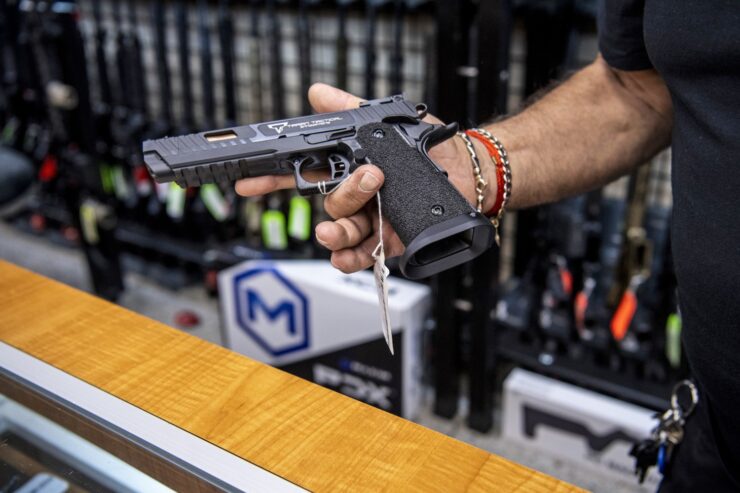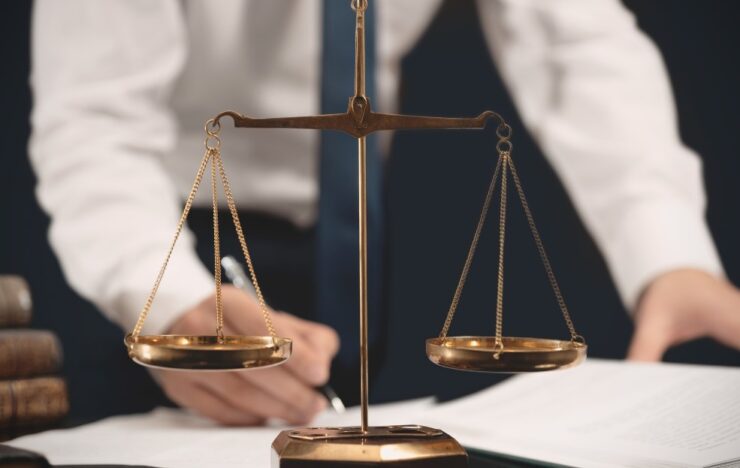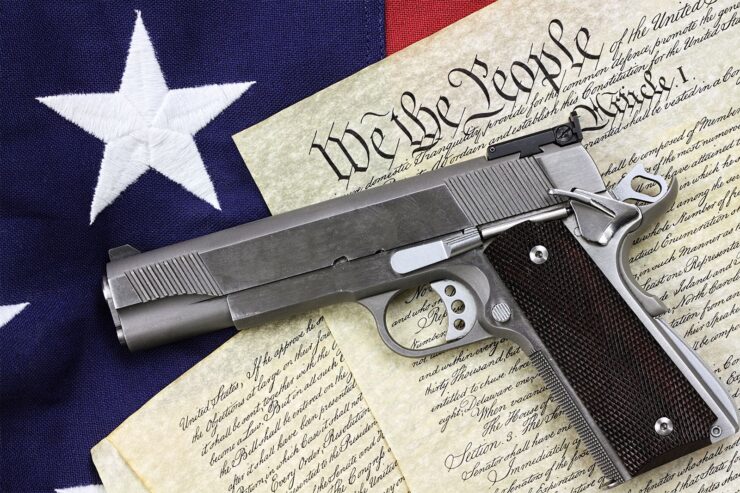In the complex realm of criminal law, gun crimes stand out as particularly intricate due to the interplay between federal and state jurisdictions. Every gun crime attorney must navigate the nuanced differences to provide effective legal representation.
This article explores the key distinctions between federal and state gun crimes, shedding light on critical aspects that attorneys need to comprehend.
Jurisdictional Variations
Federal Jurisdiction
Federal gun crimes typically involve offences that violate laws enacted by the United States Congress. These can include the possession of firearms by certain prohibited individuals, trafficking across state lines, or offences committed on federal property.
Federal authorities, such as the Bureau of Alcohol, Tobacco, Firearms and Explosives (ATF), often handle investigations and prosecutions.
State Jurisdiction

State gun crimes, on the other hand, fall under the purview of individual state laws. These can encompass a broad range of offences, from illegal possession and brandishing of firearms to assault with a deadly weapon.
State law enforcement agencies, such as state police or local sheriffs, typically investigate and prosecute these cases.
Navigating the intricate web of federal and state jurisdictions requires a keen understanding of the statutes, regulations, and case law that govern each level.
Prosecution Strategies
Federal Prosecution
Federal prosecutors often focus on cases with a significant impact on interstate commerce or cases that involve criminal organizations. The use of federal resources and broader jurisdiction allows for a more expansive approach, often resulting in higher-profile cases.
Federal prosecution may also involve collaboration with multiple agencies, including the FBI and DEA.
State Prosecution
State prosecution of gun crimes tends to be more localized, focusing on cases directly affecting the safety and well-being of the state’s residents. State prosecutors may prioritize cases that involve domestic violence, gang-related activities, or crimes within specific communities.
The approach is often more community-centred and may involve partnerships with local law enforcement agencies.
Understanding the distinct priorities and strategies of federal and state prosecutors is crucial for a gun crime attorney to build an effective defense.
Sentencing Disparities
Federal Sentencing
Federal gun crime convictions often lead to more severe sentences compared to state convictions. Mandatory minimum sentences, a hallmark of federal law, can result in lengthy prison terms.
The federal sentencing guidelines also play a significant role in determining the severity of punishment, taking into account factors such as prior convictions and the nature of the offense.
State Sentencing
State sentencing for gun crimes varies widely, with each state having its own set of sentencing guidelines. While some states may impose strict penalties, others may allow for more discretion in sentencing.
State judges often consider factors such as the defendant’s criminal history, the use of the firearm, and any mitigating circumstances when determining the appropriate punishment.
Gun crime attorneys must be well-versed in both federal and state sentencing guidelines to effectively advocate for their clients.
Role of Gun Crime Attorneys

Gun crime attorneys play a pivotal role in navigating the legal intricacies surrounding firearm offences. Their responsibilities extend beyond conventional criminal defense to understanding and leveraging the nuances of both federal and state laws.
Legal Representation
A skilled gun crime attorney provides robust legal representation for clients facing charges at either the federal or state level. This involves thorough case analysis, crafting a compelling defence strategy, and navigating the complexities of relevant statutes.
Negotiation Skills
Effective negotiation is a key aspect of a gun crime attorney’s role. Whether dealing with federal prosecutors or state attorneys, the ability to negotiate plea deals or reduced charges can significantly impact the outcome of a case.
This requires a deep understanding of the legal landscape and a strategic approach tailored to the specific jurisdiction.
Appeals and Post-Conviction Relief
In the unfortunate event of a conviction, gun crime attorneys may pursue appeals or post-conviction relief. This involves challenging legal errors, presenting new evidence, or arguing for a more lenient sentence.
The ability to navigate the appellate process is crucial for achieving justice for clients.
Gun crime attorneys serve as advocates, advisors, and strategists, ensuring that their clients receive a fair and just legal defense.
Legal Precedents
Federal Precedents
Federal gun crime cases often set precedents that impact the entire nation. Landmark decisions by federal courts can shape the interpretation of constitutional rights, the application of statutes, and the scope of federal jurisdiction.
Gun crime attorneys handling federal cases must stay abreast of evolving legal precedents to mount effective defenses.
State Precedents
While state precedents may not have nationwide implications, they play a vital role in shaping the legal landscape within individual states. Gun crime attorneys must be well-versed in state-specific legal precedents, as these decisions can influence trial outcomes and legal strategies.
Challenges and Opportunities

Challenges
Navigating the complexities of federal and state gun crime laws presents significant challenges for attorneys. The overlapping jurisdictions, varying sentencing guidelines, and evolving legal precedents demand a high level of expertise.
Keeping abreast of legislative changes and judicial decisions is essential to providing effective legal representation.
Opportunities
Despite the challenges, there are opportunities for gun crime attorneys to make a positive impact. Successfully advocating for clients’ rights, challenging unconstitutional statutes, and contributing to the evolution of legal precedents can enhance the overall justice system.
Gun crime attorneys can play a vital role in ensuring a fair and equitable application of the law.
The Impact on Communities
The prevalence of gun crimes, whether at the federal or state level, has far-reaching consequences for communities. Gun crime attorneys, through their work, can contribute to the broader goal of fostering safer and more secure neighborhoods.
Community Safety
By effectively representing clients charged with gun crimes, attorneys contribute to community safety. This includes holding individuals accountable for their actions while ensuring that justice is served in a fair and balanced manner.
Collaborating with law enforcement and community organizations can further enhance these efforts.
Legal Education and Awareness
Gun crime attorneys also play a role in educating communities about firearm laws and their rights. This proactive approach can help prevent potential offences by increasing awareness of legal consequences and responsibilities associated with firearm ownership.
Conclusion

In the complex landscape of federal and state gun crimes, gun crime attorneys serve as indispensable advocates for those facing charges.
Navigating the nuances of jurisdictional variations, understanding prosecution strategies, and addressing sentencing disparities requires a deep level of legal expertise.
Despite the challenges, opportunities abound for attorneys to positively impact communities, contribute to legal precedents, and ensure a fair and just application of the law. As the legal landscape evolves, the role of gun crime attorneys remains crucial in upholding justice and safeguarding the rights of individuals.

